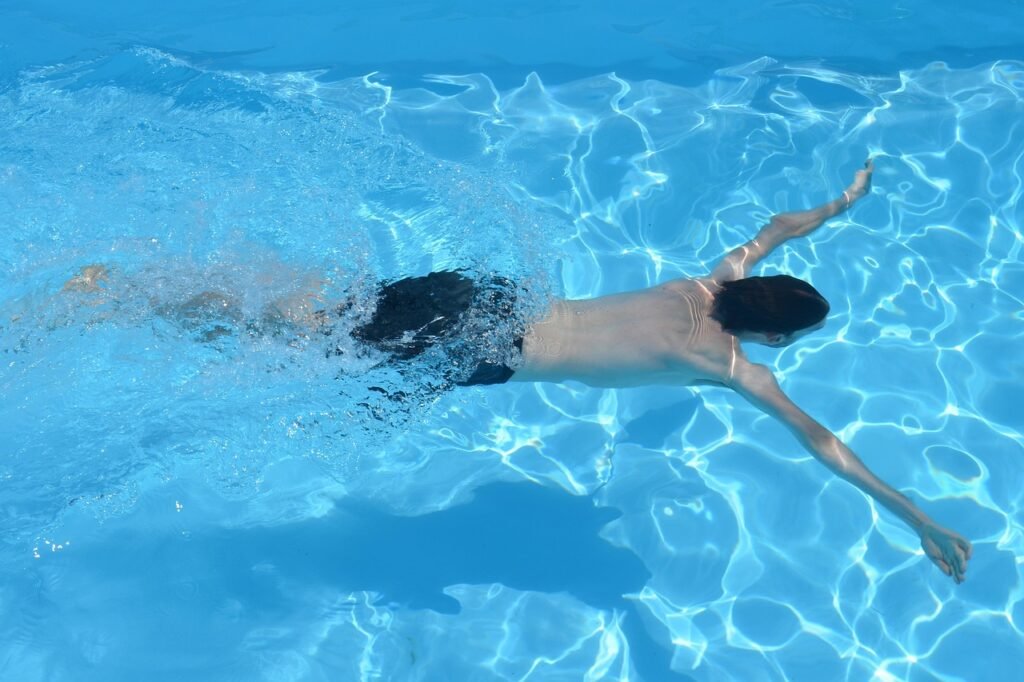The allure of Portugal’s sun-soaked resorts has long drawn millions of British holidaymakers each year. With its glittering coastline, welcoming villas, and thriving tourist towns like Albufeira, Portugal promises relaxation and escape. Yet for some, a dream holiday has turned into tragedy, as a spate of swimming pool deaths—many involving UK nationals—has dominated headlines in 2025. These sobering incidents offer a crucial moment for reflection, safety awareness, and renewed dialogue about water safety for all travellers.
Recent Tragedies: British Victims in Focus
This July, Portugal was thrust into the British news spotlight following the deaths of two young men, 29-year-old King Edonmi and 27-year-old Mo Liasu, both from Ipswich. The friends were found lifeless at the bottom of the swimming pool at their Albufeira apartment complex, less than 24 hours after arriving on holiday. Reports from local authorities suggest that both men drowned and were found by a fellow traveller in the early morning hours.
Emergency services arrived swiftly, but both victims were declared dead at the scene. Early investigations indicate no evidence of foul play. Some sources point to possible alcohol consumption and a lack of swimming proficiency as contributing factors, though official conclusions await full autopsy results. Tributes from friends and family paint a picture of two generous, kind-hearted individuals lost in circumstances that have left a community in shock.
UK authorities have stepped in to support the families, liaising with their Portuguese counterparts as standard protocol for incidents involving British citizens abroad.
A Broader Pattern: Portugal’s Swimming Pool and Drowning Statistics
These tragic deaths are part of a persistent pattern. Data from Portugal’s Association for the Promotion of Child Safety (APSI) highlight over 50 children and teenagers who drowned in the country from 2020 to 2023, with swimming pools—particularly private ones—cited as the most frequent locations for these deaths. In 2022 alone, the Portuguese Federation of Lifeguards reported 135 drowning deaths in aquatic environments, exceeding records from previous years. Alarmingly, roughly 92% of these deaths occurred in unguarded areas, and the vast majority of victims received no rescue attempt.
While the majority of victims are Portuguese nationals, recent years have seen an increase in deaths among international visitors. Children remain particularly vulnerable, with 19 of the deaths between 2020 and 2023 involving children aged four or under. The summer months, when tourism reaches its peak and many swimming pools lack professional supervision, consistently see the highest number of fatalities.
British Tourists: Are Swimming Pools in Portugal Safe?
Portugal continues to be a top destination for UK families. The Foreign, Commonwealth and Development Office (FCDO) routinely updates safety advice for British tourists, explicitly warning that “every year, people drown in the sea and in swimming pools in Portugal.” British families may assume that holiday accommodation pools are as rigorously managed as those at home, but in practice, many private villas and apartment complexes lack fencing, warning signage, or adequate lifeguard coverage.
Even in well-visited resorts, inspection and safety standards do not always match the expectations set by UK law. Holiday rentals, in particular, can present hidden hazards, especially for non-swimmers or young children. Authorities strongly recommend that at least one adult in each group is familiar with basic CPR and that constant supervision is maintained around water, regardless of swimming ability or water depth.
The Impact of Alcohol and Water Safety Culture
The recent deaths in Albufeira appear to involve alcohol, a common thread in many international drowning cases. Experts emphasise that swimming, or even paddling, while under the influence inhibits judgement, slows reflexes, and significantly increases risk—a message echoed in safety campaigns across Europe.
Furthermore, cultural assumptions about water safety play a role. APSI notes an observed lack of water safety awareness across both the local population and international visitors. Unlike the UK, where school swimming lessons and public safety campaigns are common, not all Portuguese residents or visitors can swim, and the dangers of unsupervised pools or strong currents are sometimes underestimated.
Seasonal and Regional Trends
Available data reveals that the Algarve region, where Albufeira is located, consistently ranks among the districts with the most drownings. The risk is highest in late spring and early summer when warming temperatures draw more swimmers to beaches and pools before full lifeguard coverage is established. In inland areas and private accommodation, help can be minutes away—if accessible at all—making swift intervention less likely during critical moments.
Public Health Response and Prevention Campaigns
Child safety advocates and lifeguard organisations are responding with increased educational efforts. A national campaign led by APSI and supported by Portugal’s National Republican Guard runs each summer, focusing on families, pool owners, and rental property managers. Their advice stresses pool fencing, clear signage, diligent adult supervision, swimming lessons for children, and rapid emergency response knowledge.
There is also growing advocacy for stricter inspection regimes for tourist properties, more frequent lifeguard patrols during peak season, and public investment in water safety training for both locals and tourists. Such interventions are an ongoing focus, yet achieving comprehensive safety standards remains a challenge.
Conclusion
As the families and friends of King Edonmi and Mo Liasu mourn, their story has prompted an outpouring of solidarity and support from home and abroad. Local and national authorities continue to piece together the circumstances, but the essential facts remain unchanged—lives lost, futures cut short, and lessons to be learned.
Holidaymakers cherish Portugal for its sun, surf, and memories made by the poolside. By maintaining vigilance, understanding risk, and advocating for better standards, British travellers can help ensure those memories are happy ones. For now, the hope is that through sharing, awareness, and practical action, future tragedies can be prevented, preserving the joy that so many seek under the Portuguese sun.
To read more click here

